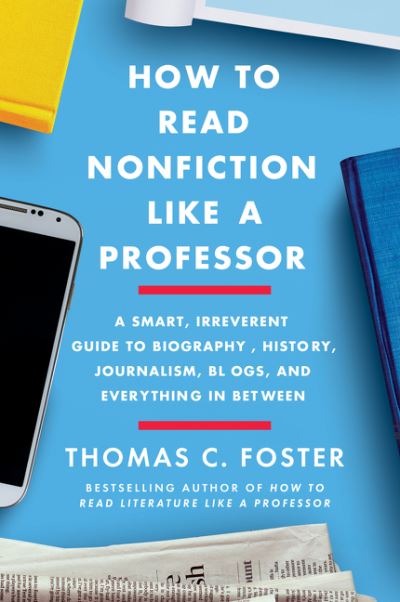
The New York Times bestselling author of How to Read Literature Like a Professor uses the same skills to teach how to access accurate information in a rapidly changing 24/7 news cycle and become better readers, thinkers, and consumers of media.
We live in an information age, but it is increasingly difficult to know which information to trust. Fake news is rampant in mass media, stoked by foreign powers wishing to disrupt a democratic society. We need to be more perceptive, more critical, and more judicious readers. The future of our republic may depend on it.
How to Read Nonfiction Like a Professor is more careful, more attentive, more aware reading. On bookstore shelves, one book looks as authoritative as the next. Online, posts and memes don't announce their relative veracity. It is up to readers to establish how accurate, how thorough, how fair material may be.
After laying out general principles of reading nonfiction, How to Read Nonfiction Like a Professor offers advice for specific reading strategies in various genres from histories and biographies to science and technology to social media. Throughout, the emphasis will be on understanding writers' biases, interrogating claims, analyzing arguments, remaining wary of broad assertions and easy answers, and thinking critically about the written and spoken materials readers encounter. We can become better citizens through better reading, and the time for that is now.
| ISBN: | 9780062895813 |
| Publication date: | 11th June 2020 |
| Author: | Thomas C Foster |
| Publisher: | Harper Perennial an imprint of HarperCollins |
| Format: | Paperback |
| Pagination: | 336 pages |
| Genres: |
Media studies: journalism News media and journalism Media studies Language readers Literacy Semantics, discourse analysis, stylistics Literary studies: poetry and poets Politics and government Poetry Literature: history and criticism |